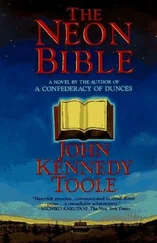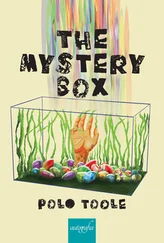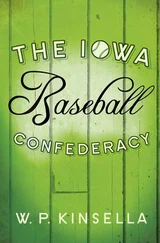John Toole - A Confederacy of Dunces
Здесь есть возможность читать онлайн «John Toole - A Confederacy of Dunces» весь текст электронной книги совершенно бесплатно (целиком полную версию без сокращений). В некоторых случаях можно слушать аудио, скачать через торрент в формате fb2 и присутствует краткое содержание. Год выпуска: 1980, Жанр: Современная проза, на английском языке. Описание произведения, (предисловие) а так же отзывы посетителей доступны на портале библиотеки ЛибКат.
- Название:A Confederacy of Dunces
- Автор:
- Жанр:
- Год:1980
- ISBN:нет данных
- Рейтинг книги:5 / 5. Голосов: 1
-
Избранное:Добавить в избранное
- Отзывы:
-
Ваша оценка:
- 100
- 1
- 2
- 3
- 4
- 5
A Confederacy of Dunces: краткое содержание, описание и аннотация
Предлагаем к чтению аннотацию, описание, краткое содержание или предисловие (зависит от того, что написал сам автор книги «A Confederacy of Dunces»). Если вы не нашли необходимую информацию о книге — напишите в комментариях, мы постараемся отыскать её.
A Confederacy of Dunces — читать онлайн бесплатно полную книгу (весь текст) целиком
Ниже представлен текст книги, разбитый по страницам. Система сохранения места последней прочитанной страницы, позволяет с удобством читать онлайн бесплатно книгу «A Confederacy of Dunces», без необходимости каждый раз заново искать на чём Вы остановились. Поставьте закладку, и сможете в любой момент перейти на страницу, на которой закончили чтение.
Интервал:
Закладка:

John Kennedy Toole
A Confederacy of Dunces
When a true genius appears in the world, you may know him by this sign, that the dunces are all in confederacy against him.
Jonathan Swift—
“THOUGHTS ON VARIOUS SUBJECTS, MORAL AND DIVERTING”
Foreword
Perhaps the best way to introduce this novel—which on my third reading of it astounds me even more than the first—is to tell of my first encounter with it. While I was teaching at Loyola in 1976 I began to get telephone calls from a lady unknown to me. What she proposed was preposterous. It was not that she had written a couple of chapters of a novel and wanted to get into my class. It was that her son, who was dead, had written an entire novel during the early sixties, a big novel, and she wanted me to read it. Why would I want to do that? I asked her. Because it is a great novel, she said.
Over the years I have become very good at getting out of things I don’t want to do. And if ever there was something I didn’t want to do, this was surely it: to deal with the mother of a dead novelist and, worst of all, to have to read a manuscript that she said was great, and that, as it turned out, was a badly smeared, scarcely readable carbon.
But the lady was persistent, and it somehow came to pass that she stood in my office handing me the hefty manuscript. There was no getting out of it; only one hope remained—that I could read a few pages and that they would be bad enough for me, in good conscience, to read no farther. Usually I can do just that. Indeed the first paragraph often suffices. My only fear was that this one might not be bad enough, or might be just good enough, so that I would have to keep reading.
In this case I read on. And on. First with the sinking feeling that it was not bad enough to quit, then with a prickle of interest, then a growing excitement, and finally an incredulity: surely it was not possible that it was so good. I shall resist the temptation to say what first made me gape, grin, laugh out loud, shake my head in wonderment. Better let the reader make the discovery on his own.
Here at any rate is Ignatius Reilly, without progenitor in any literature I know of—slob extraordinary, a mad Oliver Hardy, a fat Don Quixote, a perverse Thomas Aquinas rolled into one—who is in violent revolt against the entire modern age, lying in his flannel nightshirt, in a back bedroom on Constantinople Street in New Orleans, who between gigantic seizures of flatulence and eructations is filling dozens of Big Chief tablets with invective.
His mother thinks he needs to go to work. He does, in a succession of jobs. Each job rapidly escalates into a lunatic adventure, a full-blown disaster; yet each has, like Don Quixote’s, its own eerie logic.
His girlfriend, Myrna Minkoff of the Bronx, thinks he needs sex. What happens between Myrna and Ignatius is like no other boy-meets-girl story in my experience.
By no means a lesser virtue of Toole’s novel is his rendering of the particularities of New Orleans, its back streets, its out-of-the-way neighborhoods, its odd speech, its ethnic whites—and one black in whom Toole has achieved the near-impossible, a superb comic character of immense wit and resourcefulness without the least trace of Rastus minstrelsy.
But Toole’s greatest achievement is Ignatius Reilly himself, intellectual, ideologue, deadbeat, goof-off, glutton, who should repel the reader with his gargantuan bloats, his thunderous contempt and one-man war against everybody—Freud, homosexuals, heterosexuals, Protestants, and the assorted excesses of modern times. Imagine an Aquinas gone to pot, transported to New Orleans whence he makes a wild foray through the swamps to LSU at Baton Rouge, where his lumber jacket is stolen in the faculty men’s room where he is seated, overcome by mammoth gastro-intestinal problems. His pyloric valve periodically closes in response to the lack of a “proper geometry and theology” in the modern world.
I hesitate to use the word comedy —though comedy it is—because that implies simply a funny book, and this novel is a great deal more than that. A great rumbling farce of Falstaffian dimensions would better describe it; commedia would be closer to it.
It is also sad. One never quite knows where the sadness comes from—from the tragedy at the heart of Ignatius’s great gaseous rages and lunatic adventures or the tragedy attending the book itself.
The tragedy of the book is the tragedy of the author—his suicide in 1969 at the age of thirty-two. Another tragedy is the body of work we have been denied.
It is a great pity that John Kennedy Toole is not alive and well and writing. But he is not, and there is nothing we can do about it but make sure that this gargantuan tumultuous human tragicomedy is at least made available to a world of readers.
WALKER PERCY
There is a New Orleans city accent… associated with downtown New Orleans, particularly with the German and Irish Third Ward, that is hard to distinguish from the accent of Hoboken, Jersey City, and Astoria, Long Island, where the Al Smith inflection, extinct in Manhattan, has taken refuge. The reason, as you might expect, is that the same stocks that brought the accent to Manhattan imposed it on New Orleans.
“You’re right on that. We’re Mediterranean. I’ve never been to Greece or Italy, but I’m sure I’d be at home there as soon as I landed.”
He would, too, I thought. New Orleans resembles Genoa or Marseilles, or Beirut or the Egyptian Alexandria more than it does New York, although all seaports resemble one another more than they can resemble any place in the interior. Like Havana and Port-au-Prince, New Orleans is within the orbit of a Hellenistic world that never touched the North Atlantic. The Mediterranean, Caribbean and Gulf of Mexico form a homogeneous, though interrupted, sea.
A. J. Liebling,
THE EARL OF LOUISIANA
One
A green hunting cap squeezed the top of the fleshy balloon of a head. The green earflaps, full of large ears and uncut hair and the fine bristles that grew in the ears themselves, stuck out on either side like turn signals indicating two directions at once. Full, pursed lips protruded beneath the bushy black moustache and, at their corners, sank into little folds filled with disapproval and potato chip crumbs. In the shadow under the green visor of the cap Ignatius J. Reilly’s supercilious blue and yellow eyes looked down upon the other people waiting under the clock at the D. H. Holmes department store, studying the crowd of people for signs of bad taste in dress. Several of the outfits, Ignatius noticed, were new enough and expensive enough to be properly considered offenses against taste and decency. Possession of anything new or expensive only reflected a person’s lack of theology and geometry; it could even cast doubts upon one’s soul.
Ignatius himself was dressed comfortably and sensibly. The hunting cap prevented head colds. The voluminous tweed trousers were durable and permitted unusually free locomotion. Their pleats and nooks contained pockets of warm, stale air that soothed Ignatius. The plaid flannel shirt made a jacket unnecessary while the muffler guarded exposed Reilly skin between earflap and collar. The outfit was acceptable by any theological and geometrical standards, however abstruse, and suggested a rich inner life.
Shifting from one hip to the other in his lumbering, elephantine fashion, Ignatius sent waves of flesh rippling beneath the tweed and flannel, waves that broke upon buttons and seams. Thus rearranged, he contemplated the long while that he had been waiting for his mother. Principally he considered the discomfort he was beginning to feel. It seemed as if his whole being was ready to burst from his swollen suede desert boots, and, as if to verify this, Ignatius turned his singular eyes toward his feet. The feet did indeed look swollen. He was prepared to offer the sight of those bulging boots to his mother as evidence of her thoughtlessness. Looking up, he saw the sun beginning to descend over the Mississippi at the foot of Canal Street. The Holmes clock said almost five. Already he was polishing a few carefully worded accusations designed to reduce his mother to repentance or, at least, confusion. He often had to keep her in her place.
Читать дальшеИнтервал:
Закладка:
Похожие книги на «A Confederacy of Dunces»
Представляем Вашему вниманию похожие книги на «A Confederacy of Dunces» списком для выбора. Мы отобрали схожую по названию и смыслу литературу в надежде предоставить читателям больше вариантов отыскать новые, интересные, ещё непрочитанные произведения.
Обсуждение, отзывы о книге «A Confederacy of Dunces» и просто собственные мнения читателей. Оставьте ваши комментарии, напишите, что Вы думаете о произведении, его смысле или главных героях. Укажите что конкретно понравилось, а что нет, и почему Вы так считаете.











